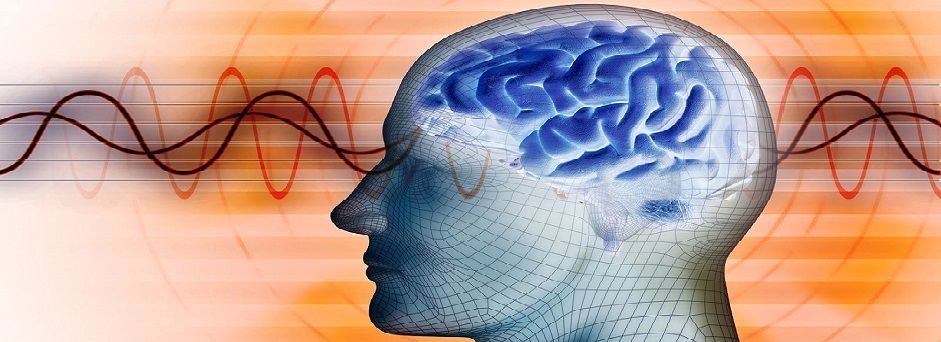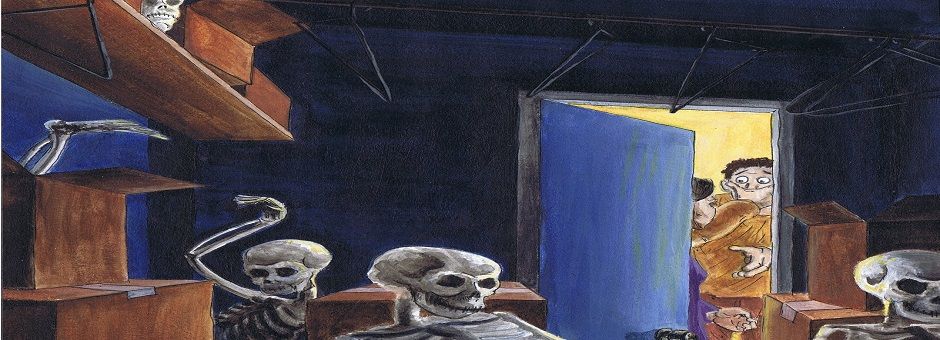An introduction to dishonesty - here
What is the self?
3. Changing the story to fit the contradictory facts you are faced with.
We can think about a simple line of enquiry and see where it ends up taking us. What does the self actually consist of, or what does the word 'I' refer to in real life?
You may think the self is the body since it is your leg, your hand and so forth. Or, you may even think the self is the mind, or perhaps a combination of both. There are a wide array of theories but you obviously have your own intuitions. For this exercise though, I want you to grab a pen or open a .txt document.
All I want you to do is write down what the self is briefly in several words. It definitely doesn't need to be a paragraph of iambic pentameter or anything like that, in fact for this exercise, less is more. I don't want you to over think this, so just go with your gut or what common sense tells you.
Once you have done that I want you to close your notepad and I am going to send you to my website for some reading, since there is little value in repeating what has already been said in the past. I outlined this aspect clearly and I think it is worthwhile to acquaint yourself with an introduction to the philosophical problem of identity, and this may be the perfect time to get a cup of tea!
Please read the two parts of this article before we crack on.
Identical Intuition - Part I
Identical Intuition - Part II
Now, having just read these I want you to think carefully about whether you want to change the original answer you gave to the question “What is the self?” Open up the notepad again and see if you want to revise your answer in light of being acquainted with the problem of identity.
If we say “The self is the mind” then how do we account for the idea that new experiences are constantly changing us and then claim we are the same thing that persists over time? We are completely different people now from when we were children, and we think differently - hopefully.
That being so, then how is it possible that minds provide continuity? If we were the mind then how can something dynamic and constantly changing be the same thing? This contradicts the very principle of identity.
If we say “The self is the body”, we run in to the Theseus paradox.
If we say “The self is a combination of the body and the mind” then how can you say two wrongs are able to make a right? Both are paradoxical so how can combining the two solve the paradox?
Of course, there are other theories available than just these and you are free to change your mind. If you have not changed your mind, you obviously have a more nuanced view of the self and have already done some investigating.
If you have changed your answer though, you have adjusted your view in light of this new knowledge, and you are now incoherent with your original belief. In this instance you have made a substantial change in your belief which is at odds with your former world-view.
This.
This is exactly the kind of thing you need to be aware of. If you have fallen in to the trap of changing your position then congratulations - you have just come across your dishonesty. This is actually a good thing though!
Allow me to explain. A major part of doing this process is to realise where you are being dishonest and subtly trying to shift your framework of thinking to warp anomalies in to your world-view.
If we analyse this a little, what we have is a contradiction in terms. One story is saying the self is the mind X and then there is the changing of the story to; the self is Y, or saying the self = X+Y I.e a combination of body and mind. Without one actually saying to themselves “I am already right”, they are actually rationalising their assumption in this manner.
They assumed they were correct all along and this contradiction in terms is just a small detail they had previously overlooked. Crucially though, this direct contradiction goes by unnoticed and does not make one realise that their entire framework of thinking rests on this view.
To outline this, if I were to say “A crab is a fish” you might look at me like a madman. After you laugh at me and explain that crabs are amphibious, I might concede a crab is a crustacean but I might ask “Maybe it is part fish?”
At this stage, you would shake your head and conclude that I haven't a clue of what I'm talking about, and that I would benefit from a lesson in marine biology.
The fact that I had never looked in to marine biology meant I had an impoverished world view but yet, I was still bold enough to assert my reasoning about crabs. Your laughing at me was sufficient to make sure I noticed that I had to revise my classification of marine species, but this was the first time I had been challenged.
If I answered honestly here, I would have to say I didn't know a thing about marine biology and would do well to look in to it and investigate it. This would mean that my view of ocean species was unfounded and my lacklustre education was to blame. If I was to proclaim that I was right regardless of the contradiction I faced then you would rightly regard this as foaming at the mouth delusion.
So how is it that one can maintain their convictions so resolutely in the face of absurdity?
It is only by completely deluding myself that I could continue to believe that crabs were part fish and refuse to look at any evidence that suggests otherwise. It is also the case that I could delude myself about the rest of my knowledge about marine species, which I would resolutely claim “Must still be true”.
This does illustrate an example of the mechanism of dishonesty that you WILL uncover during this process, however, this is only a surface veneer. The crab example is a rather fishy example of how absurd it is to usurp contradictions in to our framework of thinking. However, this is EXACTLY the mechanism we are using when we reason about the self.
Now consider that you are a social being that has a loosely defined identity within society, and has a place within a group of friends, family, and other peers. Now you might tell a story about 'you' in relation to these people. This story is obviously predicated on this 'you'.
However, when you change this definition of what 'you' is, we are not talking about a trivial example of changing a story - we are talking about changing the ontological conditions necessary for your world view to work. Your framework of thinking entails that the world is made up of certain entities and this is requisite for the possibility of 'you' to exist as an agent in charge of 'your life'.
There is a big difference here between simply changing the trivial stories we tell ourselves, and making fundamental changes to our ontology.
It is a common state of affairs where we have no need to question the nature of the self, and had you not come across this website or any of the others out there, then you would still be ignorant about it. However, we are in the business of challenging 'the story' and we need to be aware of how we make subtle changes in our beliefs about the self.
So, dishonesty, entails that you will find yourself making shifts in your ontological viewpoint to maintain this facade of self. Even if you didn't change your view in the exercise, you still need to be vigilant for when this is happening and recognise your dishonesty when it arises.
When you find yourself jumping from the self is Z, to the self is W, or the self = X+Y, or formulate some other ad-hoc derivative theory, it is here where you will find dishonesty arising. This comes about from changing your original standpoint to fit the facts you are now presented with, in order to preserve your world view.
Circular Reasoning
Interestingly, this is one of the most startling phenomenon I have ever witnessed as regards to human delusion. One of the main patterns we saw occurring again and again on Truth Strike and Ruthless Truth was that everyone used to follow a pattern of circular logic to maintain the story.
4. Enaging in circular logic
They would often reason the self is X. When challenged and this view became untenable they would then reason that the self is Y instead. When this view crumbled they would then jump to the self is a combination of X +Y.
When this was torn down they would then jump to a completely new theory of self and claim the self was Z all along. When this was demonstrated to be false they would then, unbelievably, go back to claim the self is X with an even stronger degree of conviction.
Remarkably, when their circular reasoning and ontological changes were clearly highlighted they would resort to attacking us instead of admit that they had contradicted themselves! We would see people literally slither like a snake from one position to the other without actually questioning their fairy tale.
They would desperately try to buttress their deluded world-view by going out on an all out attack, and it was here that we tore their ego to shreds in the hope that they would see their mistakes.
This was where we were able to make breakthroughs and get them to witness their dishonesty, or realise that they were beyond the stages of us being able to snap them out of their deluded fantasy.
Those who made it through the looking process actually had the courage to realise that this contradiction meant they were being dishonest with themselves. For the most part, there were many who could not cope with being wrong and we had to bear witness to some very laughable and desperately embarrassing threads, as people tried to cling to nonsense in an attempt to keep their vanity intact.
Ironically, even when their contradictions were stuffed in front of their faces they would refuse to recognise them, since they were so concerned with trying to prop up their ego. These forums I used to partake in taught me that delusion can be such a powerful force that it could literally blind people to reality.
That is why recognising your own dishonesty is one of the keys to getting traction in this investigation, and why I am harping on endlessly about it.
I cannot stress this enough.
The ability for people to engage in doublethink as regards to their ontological reasoning, and not recognise it, is one of the more sinister aspects of dishonesty. You have to be on the look out for when you are making subtle shifts in your belief system to try and fit what you find in to your framework of thinking.
This occurs most often when you take a fixed position on what the self is. This pattern played itself out on many threads I encountered on Ruthless Truth and Truth Strike and we will focus on an example shortly of this process.
This pattern of dishonesty is the core mechanism of human delusion.
Now you are aware of it you can look out for this pattern arising, and it will become a handy tool during your investigation. It used to be the case we would point this out to people and tear their ego apart.
Instead, you can recognise this pattern playing out armed with the knowledge that you will expect it to be occurring. You have to train yourself in the art of recognising dishonesty but it soon develops with a little effort.
Looping
Before we dispense with dishonesty entirely, there is another form in which it occurred. I tried to call this 'looping' to distinguish it from this shift in belief I have labelled as a pattern of dishonesty. This looping entails that you are not changing your belief subtly, but are engaged in perpetuating the same belief, even in the face of contradictory evidence.
I call this looping simply because it is analogous to a tape loop droning on and on. If we are only reasoning within the confines our assumptions, we will yield the same results over and over. The delusion can blind you to reality and cause you to ignore contradictory evidence right in front of your face.
Obviously, circular logic is the engine of dishonesty and the recognition of it renders it inert. It is only through dishonestly engaging in looping through a circle that we can maintain the facade of self. This usually affects theists as standard but I have even seen this affecting philosophically minded people too.
This is counter intuitive as you would expect philosophers to be more open minded, however, direct experience taught me this was not always the case. The tactic of some was to argue about definitions instead of actually looking.
This actually makes it harder to unravel the layers of false thinking, and makes people more prone to this phenomena of looping. This is easy to overcome though, since you need only ask what does this line of reasoning presuppose? Then you investigate those presuppositions by looking for evidence in reality instead of worrying about terminological definitions and dialectical arguments.
If you actually care about the truth then you need to question your cherished assumptions and opinions. If you really think that something exists then you should have no problem demonstrating it.
However, what used to happen most often was that some folk would use the ad nauseum argumentation strategy instead of look. This is simply because they wanted me to justify why they should look and frame me as a person that failed to convince them, when what they should have done is questioned their own assumptions. This was simply a slithering form of cowardice.
This pattern also used to play out in everyone's enquiry to a degree. When people got stuck it was because they were not challenging the constraints within which they think, and were investigating within their framework of presuppositions. It is hard to explain how to think outside the box but essentially you need to start banging against the walls to see if they really have solidity.
I will not tell you this is going to be easy since you will get frustrated and stuck during your enquiry. The trick is though, to keep going and keep challenging. As long as you are looking for the truth and challenging the constraints of your theory about the self, then you are bound to stumble on it eventually.
Next we will see how powerful a force delusion can be with a real life example from the annuls of Truth Strike.
TBC...






























